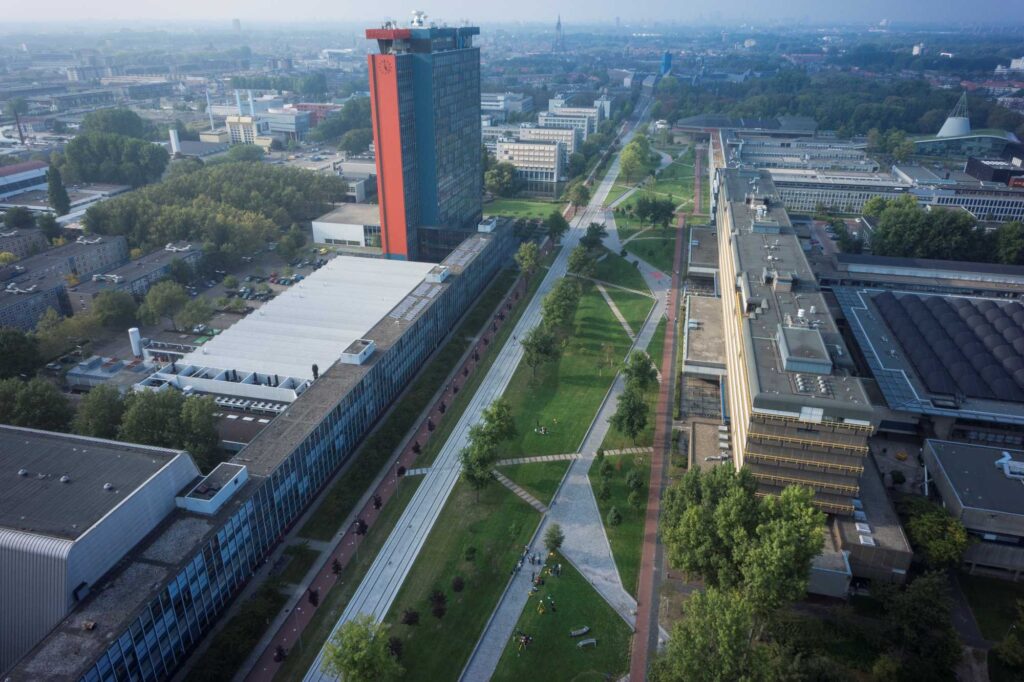Update from the Supervisory Committee: What is our path towards a socially safe TU Delft?
The steps towards a socially safer environment
Over the past few months, we have been working intensely on social safety at TU Delft. It is a topic that requires all of our attention, not just now, but on an ongoing basis. Even after 15 May, the day when the plan for change will be submitted to the Education Inspectorate.
Valuable input
A lot of input has been gathered over the past few weeks. Colleagues and students have shared valuable insights and ideas, expressed concerns and exchanged experiences. They did so at dedicated meetings, in-depth sessions, or regular (team) meetings, but also during informal gatherings in coffee corners and corridors. The suggestion box alone received over 320 responses.
Professor Naomi Ellemers, an organisational psychologist at Utrecht University and chair of the Royal Netherlands Academy of Arts and Sciences’ advisory committee on social safety at Dutch universities, also shared useful insights and ready-made guidance during a meeting with our department heads, faculty secretaries, deans and the Executive Board.
With the Mindlab theatre show, we engaged with managers on what makes a pleasant and safe working environment, how we can work together on it and what everyone’s responsibilities are.
By creating an environment in which dilemmas can be discussed, there is room for an open dialogue to take place.
Embedding reactions
A common reaction from colleagues and students over the last few weeks has been not to move too quickly towards ready-made solutions. After all, (cultural) change is not possible without acknowledging what is going wrong. You can’t just gloss over it. That is why it is important to acknowledge the suffering that people in our university have experienced or are still experiencing. The first step is to make space, to stop, to listen and to reflect. Only then can we really talk about the future. About what it will take to make TU Delft socially safer.
Action versus change
The intended action plan for the inspectorate has therefore become a plan for change. It is a document that we will continue to develop and flesh out together, even after it has been submitted to the Inspectorate. The plan, which will be submitted to the inspectorate on 15 May, already takes into account as much as possible of the input gathered in recent weeks. Input that cannot be included now, will be used at a later stage in the change process.
A first version of the change plan has now been circulated and many colleagues have been able to provide feedback. All this feedback was discussed in detail last Monday (6 May) in a feedback round with around 40 colleagues, and including delegates from the Works and Students Councils. Essential questions were addressed, such as: what is our shared vision of a socially safe university, what can we do now (concrete actions in the short term), what can be fitted in at the same time, and what will be needed additionally? Above all, what is needed to structurally ensure social safety at our university in the long term? How can we make social safety values part of our daily work and study culture? How do we become a university that we can be proud of in all respects, and where everyone can enjoy working and studying?
What next?
This week we are still working hard on the final version of the plan to submit to the Inspectorate. Once submitted, the plan will be available on this page. After that, it will continue to be updated regularly, as this plan is a starting point for change, not a finishing line.
In the coming period, the Executive Board will be attending faculty spring meetings where social safety is on the agenda, as well as attending (informal) faculty and management meetings already scheduled, in order to stay in touch and listen. Discussions with students will, of course, also take place in the coming period.
The Supervisory Committee would like to thank everyone for their feedback, ideas and suggestions. We take all feedback to heart and will continue to do so.
